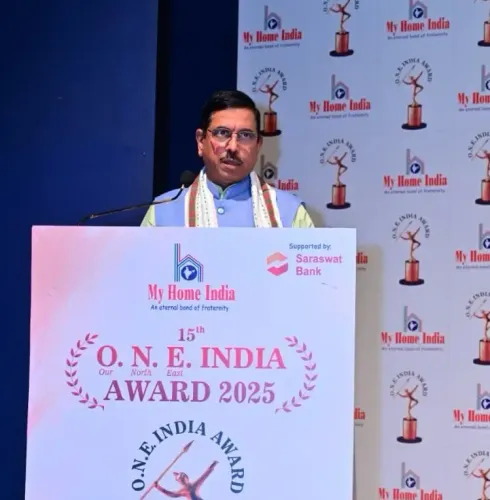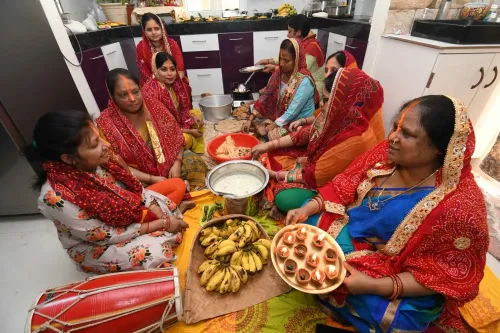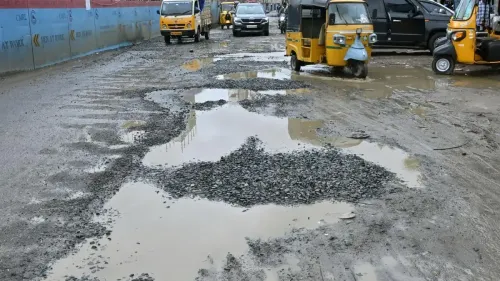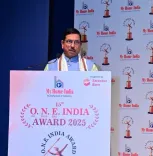Is Justice BR Gavai the Next Chief Justice of India?
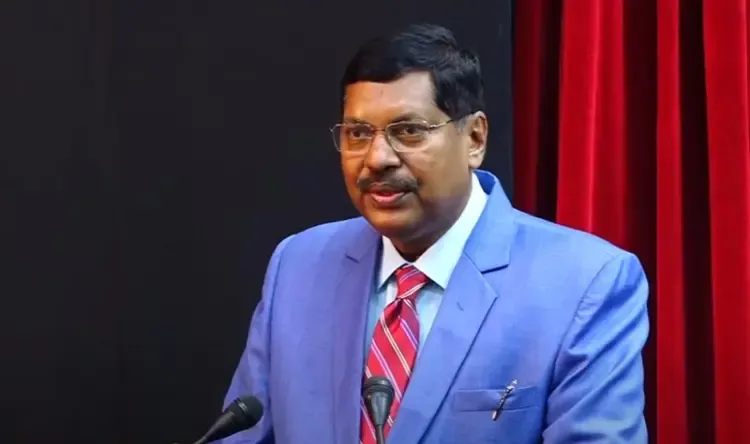
Synopsis
Key Takeaways
- Justice B.R. Gavai appointed as next Chief Justice of India.
- Effective from May 14, 2025, succeeding Sanjiv Khanna.
- Justice Gavai has extensive experience in constitutional law.
- He advocates for the creamy layer principle in affirmative action.
- Tenure concludes on November 23, 2025.
New Delhi, April 29 (NationPress) The Central Government has officially approved the appointment of Supreme Court Justice B.R. Gavai as the forthcoming Chief Justice of India (CJI).
"Exercising the authority granted by clause (2) of Article 124 of the Constitution of India, the President is delighted to appoint Shri Justice Bhushan Ramkrishna Gavai, Judge of the Supreme Court, as the Chief Justice of India effective from 14th May, 2025," stated a notification issued by the Union Ministry of Law and Justice.
The current Chief Justice, Sanjiv Khanna, is set to retire on May 13, upon reaching the age of 65.
Earlier this month, he recommended Justice Gavai as his successor.
Justice Gavai, poised to become the 52nd CJI, will have a term exceeding six months, concluding his office on November 23, 2025.
Justice Gavai ascended to the Supreme Court on May 29, 2019. He was first appointed as an Additional Judge of the Bombay High Court in November 2003 and became a permanent Judge in November 2005.
Before joining the Bench, he specialized in constitutional and administrative law, serving as Standing Counsel for the Municipal Corporation of Nagpur, Amravati Municipal Corporation, and Amravati University. He was also appointed as Assistant Government Pleader and Additional Public Prosecutor in the Bombay High Court, Nagpur Bench in August 1992, serving until July 1993, and became the Government Pleader and Public Prosecutor for the Nagpur Bench on January 17, 2000.
In the Supreme Court, Justice Gavai participated in a 7-judge Constitution Bench addressing the legality of sub-classifications among reserved category groups for enhanced affirmative action. He advocated for the implementation of the "creamy layer" principle for Scheduled Castes (SCs) and Scheduled Tribes (STs).
In his comprehensive opinion, Justice Gavai remarked, "When the 9-Judge Bench in Indra Sawhney determined that applying such a test (creamy layer test) for Other Backward Classes would promote equality as enshrined in the Constitution, why should this test not also apply to SCs and STs?"
He questioned, "Can a child of IAS/IPS or Civil Service officers be equated with a child of a disadvantaged member from the Scheduled Castes studying in a Gram Panchayat/Zilla Parishad school in a village?"
Justice Gavai emphasized that categorizing children of SCs and STs, who have benefited from reservations and risen to privileged positions, alongside children from manual labor backgrounds would undermine the constitutional mandate.

